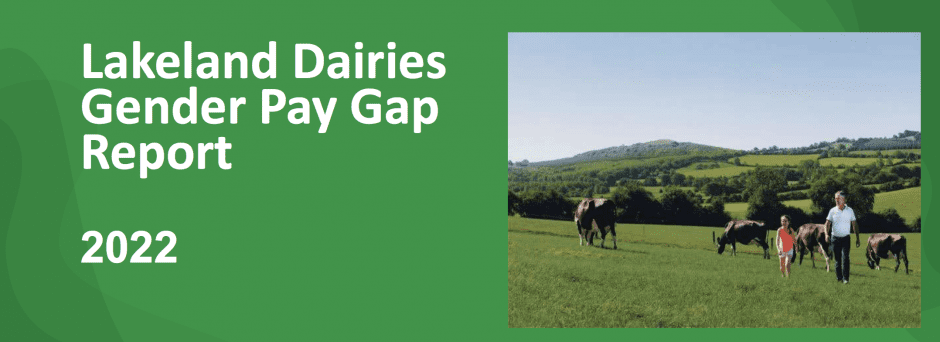Irish co-op Lakeland Diaries has published report that looks at the gender pay gap across its 656 employees, 74% of the workforce being men and 26% being women.
Published on 19 December, the Gender Pay Gap report found that Lakeland has a mean hourly pay gap of 14.1% and a median hourly gap of 9.1%. If shift and overtime pay is removed the mean pay gap is – 3.53% and the median pay gap is – 49.1%
The co-op also has a mean hourly pay gap of 7.4% and a median hourly pay gap of 2.9% among 149 temporary employees (39 females and 110 men). As to part-time employees, Lakeland Diaries has a mean hourly pay gap of -19.5% and a median hourly pay gap of 19.6%.
The report also looked at bonus gaps, with findings showing a mean bonus gap of 31% and a median bonus gap of -12.3%. 30.5% of males and 34.1% of females received bonus remuneration.
The co-op’s remuneration package provides all staff with various non-cash benefits such as vouchers, with 100% of females and 100% of males received benefit in kind.
Lakeland said the results were impacted by uneven gender representation within certain roles in the business.
“The industry that we serve has for many years been predominately male,” it said. “As one of the largest dairy processors in Ireland we recognise this is one of the central causes for our gender pay gap.

“This is something we have for many years been focusing on through our graduate and other talent acquisition programmes and various internal initiatives. The gender imbalance is most apparent in our processing sites. Traditionally, these types of on – site processing roles were very male dominated.”
The co-op argued that having proportionately fewer women in senior levels impacts the gender pay gap. “This imbalance in gender representation at the higher levels impacts the hourly mean and median pay gaps,” it said.
To address these issues, the co-op announced a new partnership with the Irish Centre for Diversity to implement, commencing in Q1 2023, a structured framework to transform our culture from the ground up. Other measures will include undertaking a review of our recruitment policies to determine how best we can support future female colleagues; supporting the career progression of female colleagues to increase representation of females at senior levels of the organisation including finance, IT, HR and site leaderships; and reviewing recruitment processes and language design.

